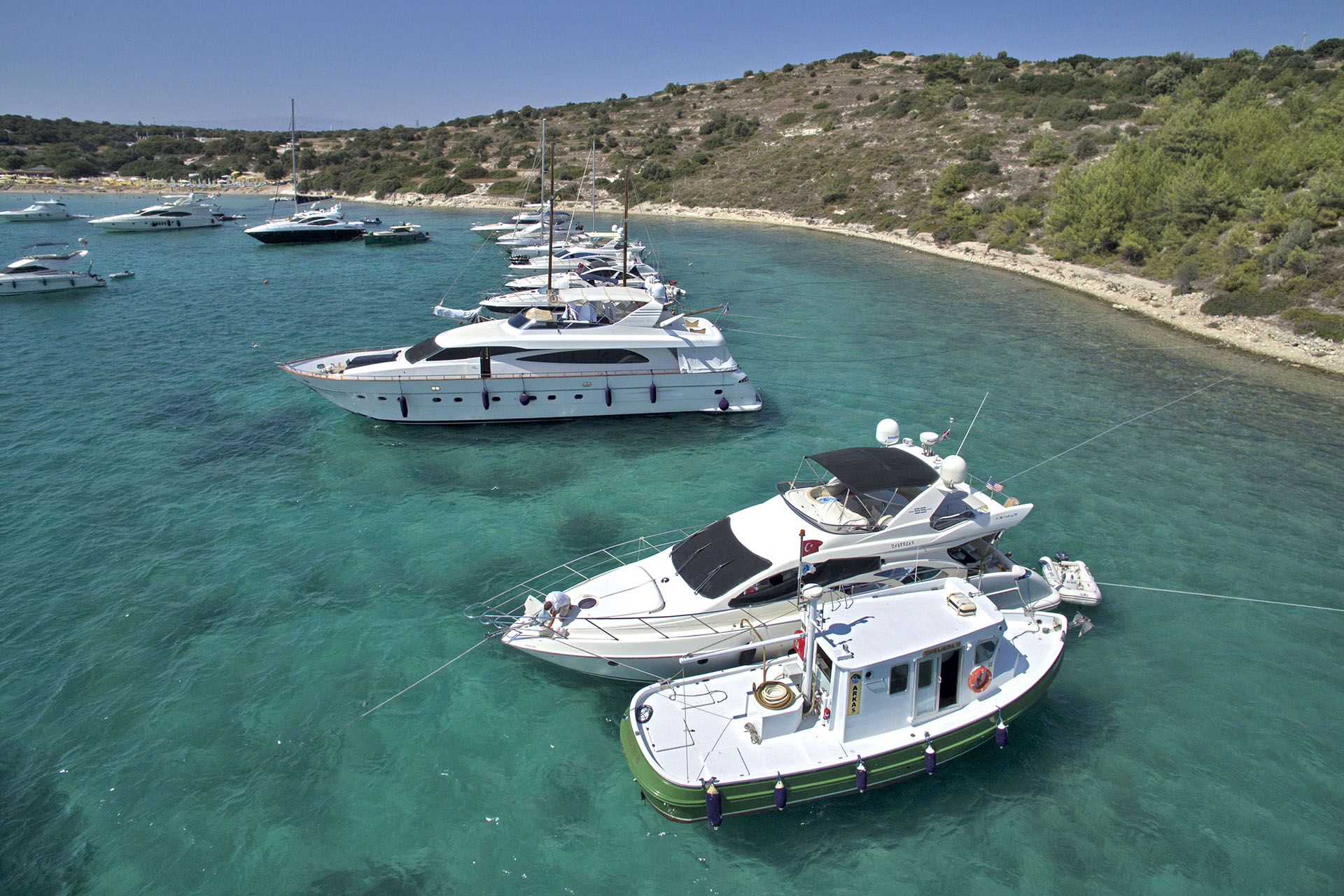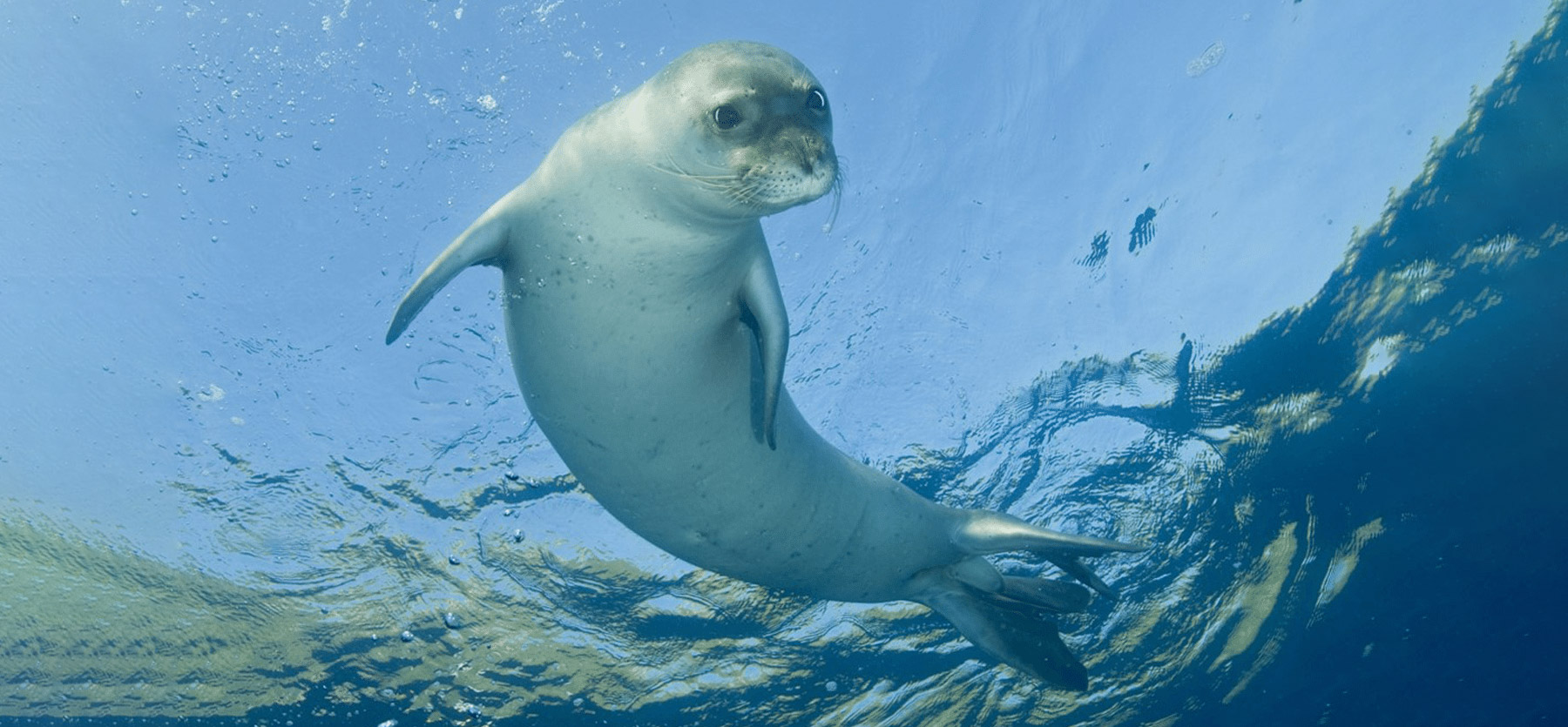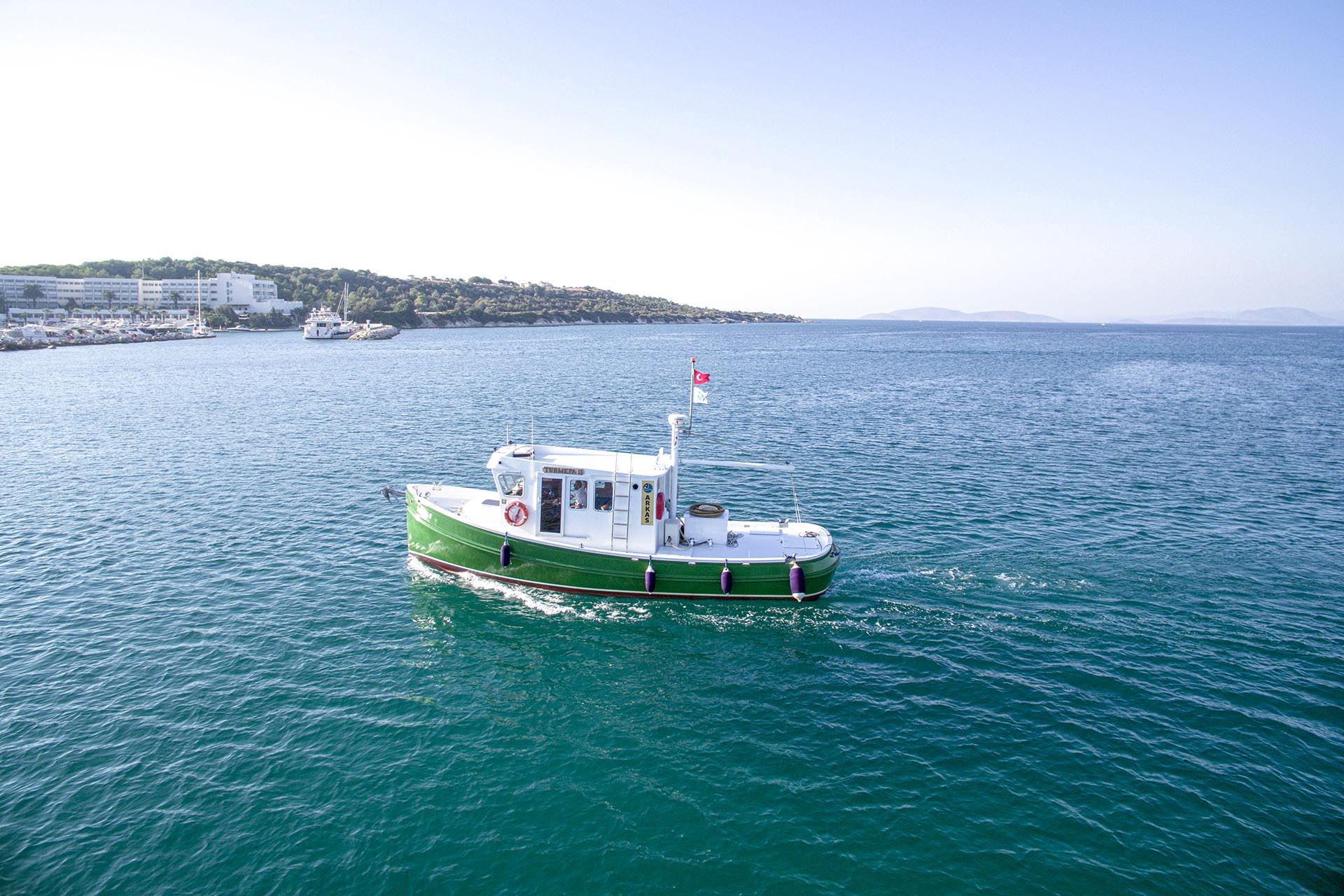Sea pollution is among one of the most important environmental issues, which has been on the front burner for the past few years. Threatening not only marine life but also human health, the extent of pollution increases the number of social responsibility projects in this field, while it also requires them to be sustainable. Having started to operate 15 years ago within the scope of the project that was launched in cooperation between Arkas Holding and TURMEPA, Arkas TURMEPA II waste collection vessel proves to be a right model for such projects considering its outcomes. The direct advantage of this project is that it both contributes to keeping the bays of Çeşme and the sea water clean and also prevents the regional sea habitat from degradation. Arkas and TURMEPA have an important role in helping maintain the lives of endangered species such as Mediterranean Monk Seals and Audouin’s Gulls.
Humankind does not give enough care to water conservation, the source of life. Every year, seas are contaminated by approximately 10 billion tons of ballast water, 10 million tons of wastewater, 3.25 million tons of petroleum and millions of tons of solid waste. The fact that seas are used for transportation and tourism also causes pollution. Similar problems are faced in Turkey that is surrounded by three seas.
The pollution load in the Aegean Region due to population and tourism, both increasing in parallel with the industrial development, exceed beyond normal limits in specific periods of the year. There are a total of 15 different waste disposal points from Turkey’s shores to the Aegean Sea. This results in pollution that is equivalent to a population of 10 million people. The social responsibility project, launched in cooperation between Arkas Holding and Deniz Temiz Derneği/TURMEPA in 2006, aims to protect the bays of Çeşme from pollution in the Aegean. ARKAS TURMEPA II waste collection vessel, built and operated by Arkas Holding, makes a major contribution to the prevention of pollution. A report on environmental sustainability of 2020 has been released within the scope of the project. This report includes the waste collection activities of Arkas TURMEPA II and its contributions to preserving the marine habitat in the bays of Çeşme.

Preventing Pollution and Recycling Wastewater
Arkas Turmepa II helps reduce environmental damages resulting from sea tourism by collecting waste from boats and yachts at the bays of Çeşme. Taking wastewater directly from its source and exposing it to subsequent water treatment, prevent the introduction of wastewater to nature and bad impacts on health conditions. Purified waters are used for different purposes such as irrigating parks and gardens or cleaning streets.
Reducing Carbon Emissions
As wastewater is emptied on-site, boats and yachts do not need to sail to disposal sites, which, in turn, hinders carbon emissions. In the fight against climate change, protecting the seas, which absorb 90% of the heat, from wastewater plays a role in the conservation of the marine ecosystem. On the other hand, studies show that seas produce 50 to 70% of the oxygen we need. This indicates that Arkas Turmepa II waste collection boat and similar projects contribute to the continuity of land life as well.
Endangered Species are Safe
Projects run by Arkas Holding and TURMEPA to prevent sea pollution, not only contribute to the reconstruction of fish population, but also affect the continuity of endangered species. Bearing in mind that Çeşme hosts protected species in its coastal and marine areas, the significance of this project can be better understood. Many species such as Audouin’s Gull, Sea Otter and Caracal Caracal also live in Karaburun, which is the habitat of Mediterranean Monk Seals. The fact that 100 of the remaining 600 Mediterranean Monk Seals live in Turkey increases the value of Arkas TURMEPA II project.

Over 15.2 Million Liters of Seawater are Kept Clean
The amount of wastewater, which Arkas TURMEPA II boat has collected since 2006, has reached 1.9 million liters together with 90,000 liters collected from 300 boats in the summer season of 2020. This amount equals the volume of nearly 100 thousand barrels of water. With this project, 15.2 million liters of seawater remained clean. Arkas TURMEPA II will continue to protect the waters in the bays of Çesme in 2021.
References
KÖSEOĞLU Burak, TÖZ Ali Cemal, ŞAKAR Cenk (2016), Deniz Atıklarının Değerlendirilmesi ve Geri Dönüşümü: İstaç Örneği, Dokuz Eylül Üniversitesi Denizcilik Fakültesi Dergisi, 154-156.
MEB (2014), Millî Eğitim Bakanlığı Aile ve Tüketici Hizmetleri, Su Kirliliği ve Önlemleri, Ankara, s.18-21.
TURMEPA (2020), TURMEPA II Atık Alım Teknesi Çevresel Sürdürülebilirlik Raporu.


